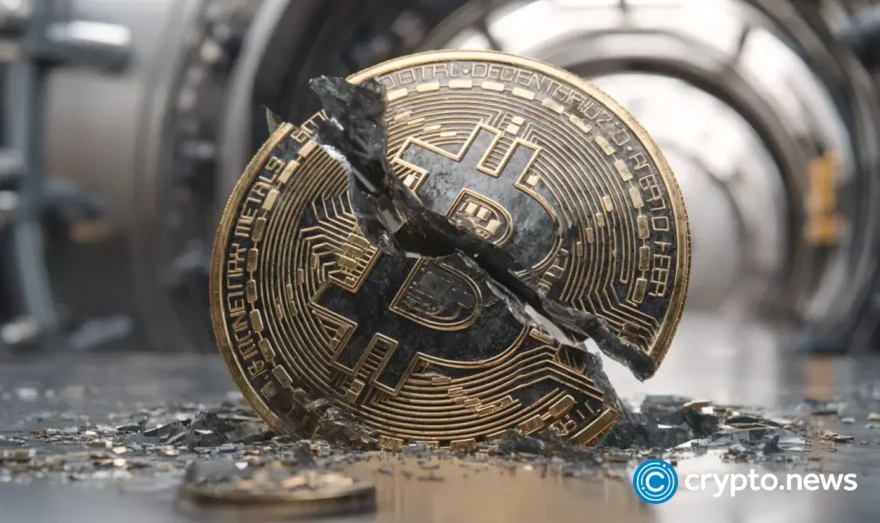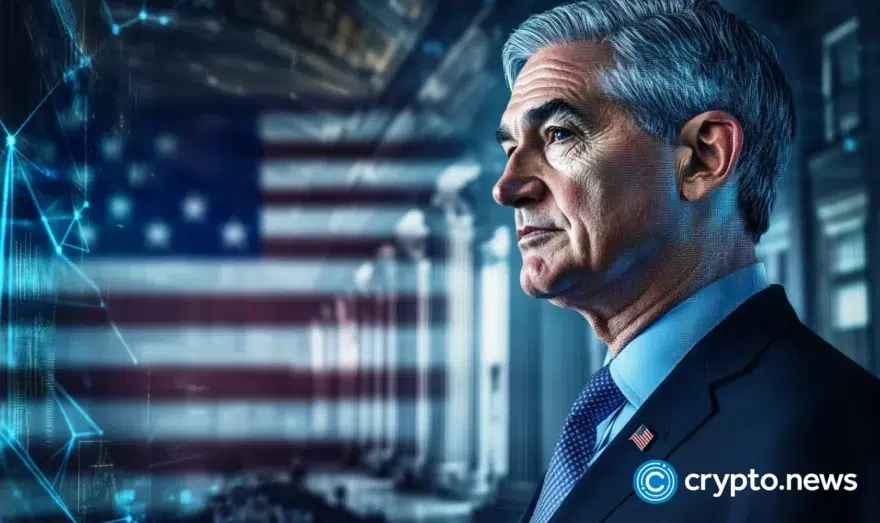Fake news on Bitcoin ETF approval: How rumors can sway the crypto market

The crypto community stirred as news of a Bitcoin ETF approval sent BTC prices to almost $30,000. However, this was debunked, resulting in a drop to around $28,000. This incident highlights crucial aspects within the crypto sphere.
A rollercoaster day for Bitcoin
On Oct. 16, Cointelegraph tweeted that the SEC had given a thumbs up to BlackRock‘s iShares Bitcoin (BTC) spot ETF. Within just an hour, Bitcoin’s value rocketed to around $30,000 – a number we hadn’t seen since the start of August. That’s nearly a 10% jump. It seemed like everyone wanted a piece of the action, thinking this was a big step towards blending Bitcoin with mainstream finance.
But the party didn’t last. Both BlackRock and the SEC were quick to say, “That’s not true.”
As reality dawned, Bitcoin’s value did a U-turn, diving back to about $28,500 as of Oct. 17.
CoinGlass reported close to $100 million in BTC liquidations within the 24 hours leading up to Oct. 17. This wild ride showed just how much even a whiff of a rumor can shake up the crypto scene.
Let’s play pretend for a moment. What if that news had been real? Given the swift, nearly 10% increase in Bitcoin’s value within an hour in response to a rumor, the SEC’s official nod to a Bitcoin ETF could have been a game changer.
However, in his latest monthly report sent to subscribers, David Duong, head of institutional research at Coinbase Institutional, noted that “the potential approval of one or more spot Bitcoin ETPs has already been partially priced in”.
The crypto community weighs in
The rollercoaster day wasn’t just felt on the trading floors and home setups. Twitter (now X) – was buzzing, too. And as always, the reactions ranged from sharp criticisms to light-hearted jests.
Some found humor amidst the chaos. The tweet showcased a sequence of events: Cointelegraph’s erroneous announcement of the Bitcoin ETF approval, the quick pump in Bitcoin’s value, and a fictional claim of a Cointelegraph intern profiting handsomely from the short-lived surge.
But amidst the humor and speculation, some chose to reflect on the evolving stance of financial giants. A particular nudge at BlackRock’s CEO, Larry Fink, highlighted the changing tides.
And it seems the rumor factory hasn’t closed shop.
Gary Gensler, the man holding the SEC reins, might be looking to strike down Bitcoin ETF applications. Some users even suggested that he’s using the recent news hiccup as proof of crypto’s vulnerability to manipulation.
Meanwhile, this entire episode was a glimpse into the “what ifs” of the crypto world. And it leaves us wondering how susceptible the crypto market is to rumors.
The thin ice of crypto market rumors
The cryptocurrency market is notably sensitive, often skating on thin ice, with even slight tremors of rumors capable of cracking its surface. History bears witness to how swiftly the market reacts, sometimes detrimentally.
Take Ethereum’s (ETH) layer 2 blockchain Optimism’s (OP) native token as an example. In August 2022, the crypto space buzzed with speculations of a hack concerning its multi-signature wallet.
Despite the core team’s immediate clarification that there was no such incident, the OP token’s value took a nosedive, dropping 10% within mere minutes.
It was later revealed that the cause of the disturbance was just preplanned fund transfers related to Coinbase Custody. Though the token recovered, the rapid fluctuation underscored the market’s hair-trigger sensitivity to unverified news.
In July 2021, a report from London’s City A.M. newspaper dropped a bombshell, suggesting that e-commerce titan Amazon might start accepting Bitcoin by the end of the year.
This single unconfirmed piece of news electrified the market, propelling Bitcoin’s value to an astonishing $40k level from previous $30k levels.
However, Amazon promptly denied these claims, bringing Bitcoin’s surge to a screeching halt. The mere job posting for a digital currency lead at Amazon had been enough to set the market abuzz, illustrating its propensity to latch onto any hint of mainstream adoption.
Such incidents raise questions about the intentions behind these rumors. Are malicious actors trying to manipulate market sentiment for quick gains? Or are these genuine misunderstandings?
Whatever the case, it’s evident that in the crypto world, where immense value can shift in moments, accurate communication and careful news consumption is paramount.
The fine line of ethical journalism
Journalism, especially in the fast-paced world of crypto, is not just about dishing out the juiciest bits; it’s also about ensuring they’re accurate.
According to a 2020 survey, nearly 59% of links shared on social media aren’t even clicked on, meaning people share without verifying. In the crypto world, where a mere whisper can lead to wild price swings, verifying news is not just recommended; it’s essential. After all, in the dance of words and numbers, a misstep can cost millions.














